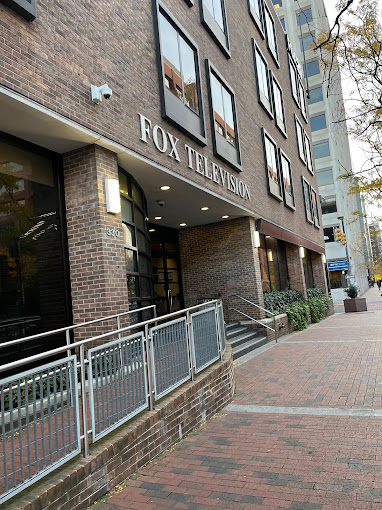PHILADELPHIA — Two media veterans have submitted comments with the FCC that, as the group seeking to thwart Fox Corporation’s license renewal of WTXF “FOX 29” believes, bolster its claim that the TV station owner and both Rupert and Lachlan Murdoch lack the character required of public broadcast license trustees.
Four shareholder derivative lawsuits accusing Fox Corporation’s Board of Directors of breaching its fiduciary duty are the focal point of a FCC filing made by Ervin Duggan and Bill Kristol.
Duggan is the former President of PBS and ex-Commissioner of the FCC, appointed in 1990 by President George H.W. Bush; Kristol is known as the former Weekly Standard Editor.
As they see it, the lawsuits are important for the FCC to have full knowledge of as it determines whether or not WTXF, the Philadelphia O&O that carries FOX network programming and local news and public affairs shows, should continue to be licensed to Fox.
Duggan and Kristol point out that the lawsuits allege both Rupert Murdoch and Lachlan Murdoch, as well as various officers and directors, were complicit in decisions to disseminate false news and operate Fox News outside the bounds of First Amendment protections. As a result, they contend, the company failed to safeguard shareholders from various journalistic integrity issues.
“The pension funds’ lawsuits address FOX leadership’s willingness knowingly to lie about important matters, and go to the heart of the issue before the FCC,” Kristol said. “These lawsuits paint the story of a corporation led by the Murdochs that lacks the character expected of a broadcast licensee.”
According to MAD, Delaware law allows the plaintiffs to review non-public corporate information, known as Section 220 material, in preparation for drafting a complaint. “This non-public information goes to the core questions before the Commission,” MAD says.
One lawsuit details how Fox “scrapped processes in place” at the Board of Directors level to monitor journalistic integrity issues in 2019. Those policies, MAD argues, were only reconsidered in mid-2021 after the Dominion (and pending Smartmatic) litigation was filed. This is according to a complaint filed by Tredje AP-Fonden and other plaintiffs.
The same complaint also raises the issue of whether the Board’s lack of journalistic integrity policies was related in some way to Rupert and Lachlan Murdoch’s desire to stem viewer defection to preserve their influence in conservative politics, which the complaint argues they prioritized above broadcasting the truth.
“These lawsuits offer critical new evidence from Section 220 material and reflect that FOX shareholders are as troubled by the same core issues that should trouble the Commission,” MAD believes.
The Duggan-Kristol filing ends by saying the FCC “should not—cannot—don blinders as to the implications that the questions being weighed in [the Delaware Court of Chancery] must have on its judgment as to whether FOX and its Controllers can be trusted to operate broadcast stations in the public interest.”
Duggan commented, “These lawsuits show the parent corporation of the broadcast licensee showed poor judgment and questionable character in managing a business that—but for FCC licensure—is identical in core objectives and operation of its subsidiary broadcast station. We believe firmly that these nonpartisan lawsuits demonstrating bad judgment and suspect character should speak loudly to the Commission.”
Two of the four lawsuits filed by pension funds representing workers in the City of New York, Oregon, Rhode Island, and the Swedish Government, cite MAD’s Petition to Deny as an outcome of the “recklessness of the FOX Board’s inability to reign senior leadership in, allowing them to continue to promote lies about the 2020 election.”
Meanwhile, the Preston Padden-affiliated group Media and Democracy Project (MAD) has filed a motion requesting the FCC to compel Fox to produce key non-public discovery from its various lawsuits to ensure full transparency and accountability for its actions. Specifically, MAD’s motion seeks evidence from the Dominion and Smartmatic litigations, all documents reviewed in the four stockholder derivative lawsuits, and internal communications from WTXF.




